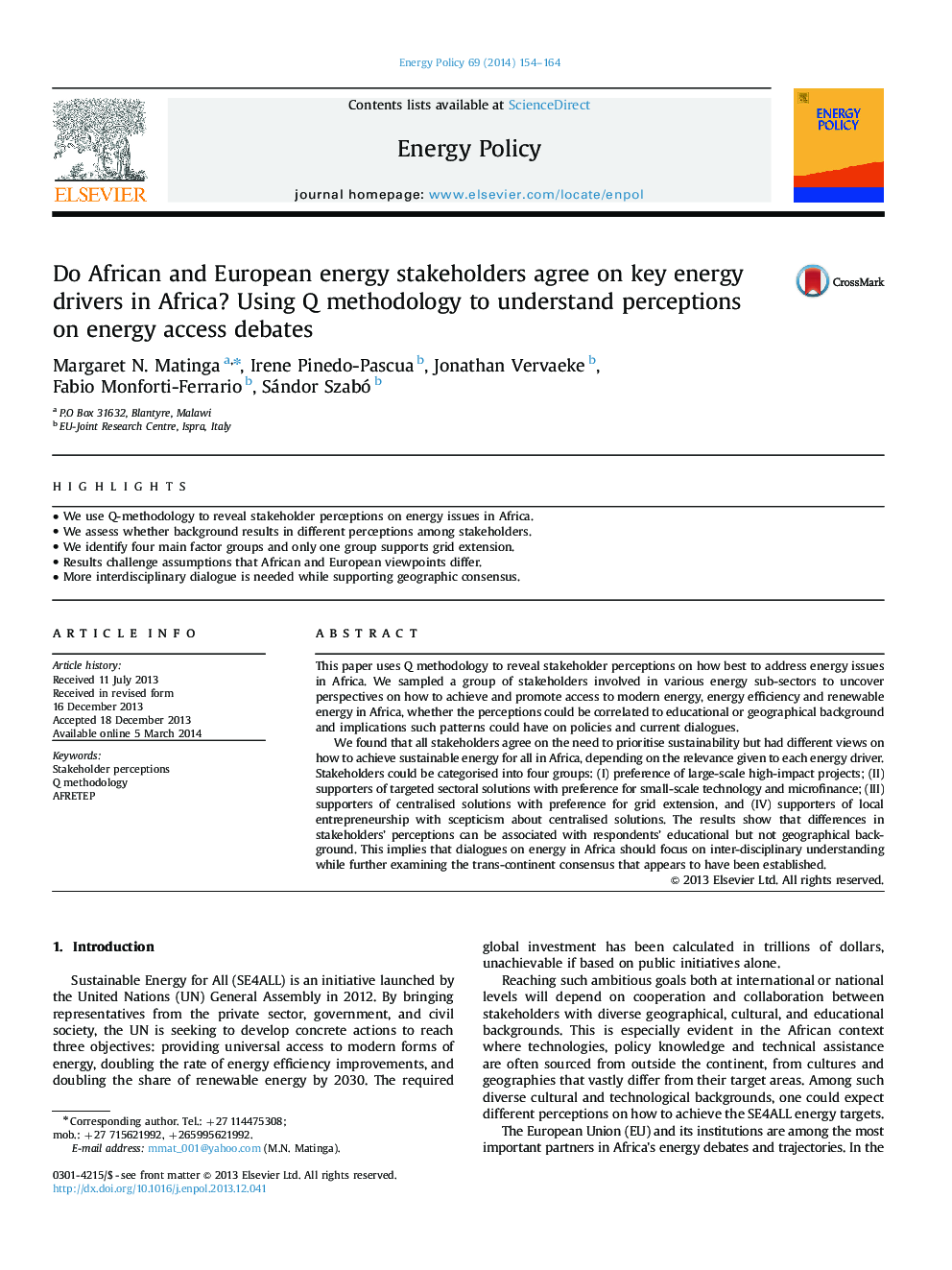| Article ID | Journal | Published Year | Pages | File Type |
|---|---|---|---|---|
| 992894 | Energy Policy | 2014 | 11 Pages |
•We use Q-methodology to reveal stakeholder perceptions on energy issues in Africa.•We assess whether background results in different perceptions among stakeholders.•We identify four main factor groups and only one group supports grid extension.•Results challenge assumptions that African and European viewpoints differ.•More interdisciplinary dialogue is needed while supporting geographic consensus.
This paper uses Q methodology to reveal stakeholder perceptions on how best to address energy issues in Africa. We sampled a group of stakeholders involved in various energy sub-sectors to uncover perspectives on how to achieve and promote access to modern energy, energy efficiency and renewable energy in Africa, whether the perceptions could be correlated to educational or geographical background and implications such patterns could have on policies and current dialogues.We found that all stakeholders agree on the need to prioritise sustainability but had different views on how to achieve sustainable energy for all in Africa, depending on the relevance given to each energy driver. Stakeholders could be categorised into four groups: (I) preference of large-scale high-impact projects; (II) supporters of targeted sectoral solutions with preference for small-scale technology and microfinance; (III) supporters of centralised solutions with preference for grid extension, and (IV) supporters of local entrepreneurship with scepticism about centralised solutions. The results show that differences in stakeholders’ perceptions can be associated with respondents’ educational but not geographical background. This implies that dialogues on energy in Africa should focus on inter-disciplinary understanding while further examining the trans-continent consensus that appears to have been established.
